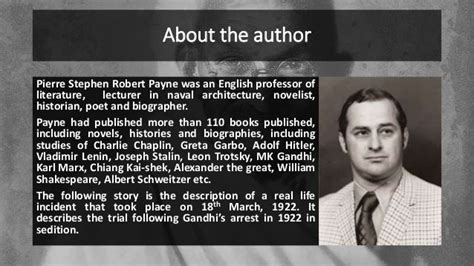A Quote by Helen Keller
Commercial concerns have expanded from family business to corporate wealth which is self-perpetuating and which enlightened statesmen and economists now dread as the most potent oligarchy yet produced.
Related Quotes
The power of perpetuating our property in our families is one of the most valuable and interesting circumstances belonging to it, and that which tends most to the perpetuation of society itself. It makes our weakness subservient to our virtue; it grafts benevolence even upon avarice. The possession of family wealth and of the distinction which attends hereditary possessions (as most concerned in it,) are the natural securities for this transmission.
Because of the control of the media by corporate wealth, the discovery of truth depends on an alternative media, such as small radio stations, networks, programs. Also, alternative newspapers, which exist all over the country. Also, cable TV programs, which are not dependent on commercial advertising. Also, the internet, which can reach millions of people by-passing the conventional media.
The early Rockefellers made their wealth from being in certain businesses and remained personally very wealthy. Tata's were different in the sense the future generations were not so wealthy. They were involved in the business but most of the family wealth was put into trust and most of the family did not in fact did not enjoy enormous wealth.
The - the early Rockefellers made their wealth from being in certain businesses and - and remained personally very wealthy. Tatas were different in the sense the future generations were not so wealthy. They - they were involved in the business, but most of the family wealth is put into trust, and the family did not, in fact, enjoy enormous wealth.
The most obvious and yet the oldest and most stubborn error on which the appeal of inflation rests is that of confusing ‘money’ with ‘wealth’…Real wealth, of course, consists in what is produced and consumed: the food we eat, the clothes we wear, the houses we live in. It is railways and roads and motor cars; ships and planes and factories; schools and churches and theaters; pianos, paintings and books. Yet so powerful is the verbal ambiguity that confuses money with wealth, that even those who at times recognize the confusion will slide back into it in the course of their reasoning.
As a matter of fact 25% of our U.S. investment banking business comes out of our commercial bank. So it's a competitive advantage for both the investment bank - which gets a huge volume of business - and the commercial bank because the commercial bank can walk into a company and say, "Oh, if you need X, Y and Z in Japan or China, we can do that for you."
The legislator should direct his attention above all to the education of youth; for the neglect of education does harm to the constitution. The citizen should be molded to suit the form of government under which he lives. For each government has a peculiar character which originally formed and which continues to preserve it. The character of democracy creates democracy, and the character of oligarchy creates oligarchy.
There are still two forms besides democracy and oligarchy; one of them is universally recognized and included among the four principal forms of government, which are said to be (1) monarchy, (2) oligarchy, (3) democracy, and (4) the so-called aristocracy or government of the best. But there is also a fifth, which retains the generic name of polity or constitutional government.
































